That was the year that was.1/3/2024 2023 felt like the first year of 'normality' (interpret as you will) since 2019, from my small corner of the music world.
After wondering if the musical busyness of Glasgow would ever recover from the pandemic, it felt like it returned at full throttle, with an explosion of arts events across the city and country, with more to see than ever before (and with a greater amount of new music on offer - that I can recall - than at any time in Glasgow in the previous 20 years). This has required some meticulous planning for organising concerts of new works by our RCS composers, as well as to allow me to get to as much as I could (around work and family life). Coupled with my post-pandemic dip in creative activity (when many projects simply disappeared), it has also meant that I have spent less time on brand new pieces, and focused on making sure that my back catalogue of work is available for my homepage at Composers Edition (which it mostly is now!). Alongside my teaching commitments (individual tutorials, classes and lectures at the RCS), and board membership at NYOS, I have once again been involved with the fantastic Notes From Scotland project for young composers, and with the second year as external examiner for the BMus degree at the Royal College of Music and NAFA in Singapore. I have also finally started to think ahead a little more (for the first time since 2019!), and have some strong creative plans for 2024, which I will hope to share soon. I am also very excited to continue with my role as Head of Composition at the RCS (also new in 2023!), and there are some interesting plans in place for the next year. Happy New (Music) Year!
0 Comments
We made it...12/20/2021 Despite a manic year of homeschooling, cancelled (and rescheduled and cancelled) travel, and occasional (COVID-induced) periods of isolation, I have managed to achieve a few things over the last 12 months: My album of music for wind instruments –Pilgrim of Curiosity – was released on the 24th of September, through Delphian Records; thanks to RSNO Winds, and Carla Rees for performing on it, as well as Creative Scotland, the RVW Trust and the RCS Exchange for funding towards this. It received some good reviews, such as in BBC Music Magazine, by Ken Walton in the Scotsman (5 stars!), and Arnold Whittall, for Gramophone magazine, as well as some good radio play so far; this includes BBC Radio Scotland, Radio 3, and CKIAFM, in Quebec. Some movements of Pilgrim of Curiosity were also programmed in the London New Wind Festival (also in September). I also finally picked up a publisher in 2021, and an increasing number of my scores are now available from Composers Edition; I still have some at the Scottish Music Centre, and some published by Tetractys (music for flutes). A larger, live performance version of From the Coast – for bass clarinet and fixed media - was commissioned by sound (with thanks to Hope Scott for funding) and performed by Alex South on the 21st of October. The score is available from CE here. Education work was as important to me as ever this year, and I gave a talk at the SAME conference in September, entitled Techniques for Composing, to music educators around Scotland (online!). I also gave an Exchange Talk (the RCS series of Research talks) on Pilgrim of Curiosity in November, which is always an interesting/useful/revealing process for me, especially as these are not primarily for musicians. In October, I was appointed as external examiner for the BMus degree at the Royal College of Music, as well as at Nanyang Academy of Fine Arts (Singapore) and BSc at Imperial College, London. I began work on a project with Red Note, in Methil this year, which is focused on bringing together different groups within this Fife coastal community, with the aim to help them create and draw together (and write) a series of musical moments that we can shape into a performance in the summer of 2022; it has been great to work with Martina Corsini on this project too (Red Note's Associate Artist in 2021). One of the projects that has re-appeared (which I thought the pandemic had eradicated) is further development on Through The Shortbread Tin – a show in Gaelic/Scots/English from my writer friend/collaborator Martin O’Connor. This is in development with the National Theatre of Scotland, and I am currently writing music for a group of female, Gaelic singers (and learning a lot of Gaelic as I go!). I am still currently working on my (much-delayed) song cycle for the Amalie Trio, based on texts from postcards I bought in the Barras market (in Glasgow), with the hope that we can meet at some point in 2022 to rehearse/collaborate/improve these in person together! In the new year, I will be stepping back from the role of co-chair for New Music Scotland (after a number of years!), and will continue as a board member of NYOS. I will also continue in my role as Interim Head of Composition at the RCS for the next year. Thanks to all collaborators in 2021, and best wishes to all for 2022! A Pilgrim of Curiosity in 202012/30/2020 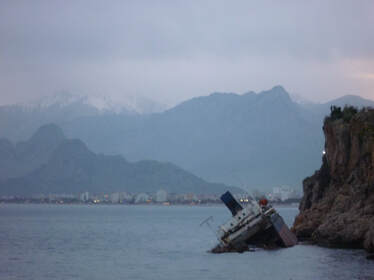 Antalya, Turkey, March 2011 Antalya, Turkey, March 2011 2020 has kept me busy. My role as Interim Head of Composition at the RCS has continued, and I have also been navigating the various projects that have/haven't happened in the second half of this year (and into next). Like everyone I know in the world of new music, many of my projects (either at the planning stage, or previously definite) have been cancelled, with little prospect of any re-scheduling at the moment for the majority. One project that has (miraculously) gone ahead was the recording of an album of some of my works for wind instruments, which took place during the week of the 14th of December; I had been planning this since February this year, with funding applications written at the end of 2019, so it has been a long time coming! I was fortunate to work with a team of players from the RSNO, along with two of my longer-term collaborators: Richard Craig and Carla Rees (both virtuoso flute players). Delphian Records have recorded all of the material, for editing in the new year, and eventual release in April 2021. The repertoire for the album is as follows: Pilgrim of Curiosity (wind quintet) - ca.40 mins Snowbirds (wind quartet) - ca.9 mins Dalriada (reed trio) - ca.20 mins Faith, Hopes and Charity (solo baroque flute) - ca.6 mins The RSNO have been a long-term supporter of my work, and as well as making their principal players available, we were also able to record in their new concert hall (in the RSNO Centre, in Glasgow); Richard Craig kindly stepped in at the last moment, due to two other flute players having to step back, and Carla Rees popped up from London for the day, to record the solo work; I am still surprised that any of this happened, and it took a lot of concentrated effort from everyone to allow this to take place! Until the final session was done that week, I was still pretty certain that COVID was going to prevent someone from turning up. Paul Baxter (from Delphian) was fantastic, and guided us all through the recording process; due to the lack of opportunities to meet prior to this week - and co-ordinating parts between players, due to the physical-distancing regulations - I had to conduct a lot of the music for the ensembles, which helped hold it all together. I am still surprised that the largest project I had planned this year (in terms of budget and organising on my part) actually happened, and that any postponement was avoided on this occasion. I am therefore very grateful to the following organisations/individuals for their support, without which the project would not be taking place: RSNO Delphian Records RCS Exchange RVW Trust Creative Scotland Carla Rees Richard Craig Happy New Year!9/21/2019 It is looking like it will be another busy term at the RCS this session for me, as I continue in the post of Interim Head of Composition.
Aside from the day-to-day running of the Composition Department, I will also be teaching a number of different classes across all years of our BMus/MMus degrees. This includes 1-1 composition teaching, PhD supervision, full-class free composition seminars and classes on orchestration, analysis, contemporary repertoire, free improvisation, interdisciplinary composition, and being a freelance musician/composer. On top of this, I am also adding some more movements to my wind quintet, collaborating a little more with writer Martin O'Connor on his Ossian project, and hatching some plans for new projects next year. Having (almost) made it through to the end of a rather packed academic year, I am looking forward to a number of activities over the next few months.
This week at the RCS contains our graduation ceremonies (on Thursday 4th July) - where I will be congratulating all of our graduating BMus/MMus composers - as well as our first ever Fair Access Composition Summer Course, working with 9 young composers, along with some of our student performers, to discuss/hear some of their music and lead some techniques classes. I also have some rehearsals with community theatre groups, working towards a performance at Paisley's Sma' Shot Day on Saturday, 6th of July. For the rest of the summer, I will be working on a number of projects, including a new version of a piece for contrabass flute and flute ensemble (for the fabulous Carla Rees), and some more music for wind quintet, for recording/performance later in the year. But first, a much-needed (and hopefully well-deserved) holiday.; happy summer everyone... Variety is the spice.5/12/2019 I find myself in the midst of a rather manic (but productive/enjoyable) two weeks at the moment.
Last week, PLUG took place at the RCS, featuring the work of over 40 of our composers (all premieres), over 10 concerts of new pieces (of which I attended every single one). I am also currently working on two theatre projects at the moment; a piece of street theatre with Grinagog Theatre, and some development with writer Martin O'Connor, which involves me writing a number of Gaelic songs. On Monday the 13th of May, we have the Scottish Awards for New Music, which are taking place for the 3rd time in Drygate (I will be there in my capacity as chair of New Music Scotland, who have organised it); I will also be fitting in a board meeting with NYOS earlier that day, and some composition teaching at the RCS on Tuesday, before heading off to Classical:NEXT in Rotterdam on Wednesday morning, then back to Glasgow on Saturday to run some composition workshops with the RSNO. Then, I will treat myself to a day off, before the marking mountain topples at the RCS the following week... Back in 2015, I developed a new course for my RCS students, as an opportunity for them to learn about the technologies used by the organisation and ways to integrate these into their musical practice, whilst developing new material for the instruments, then encouraging interaction with DMS musicians and participants. One of the principle aims was to build skills and confidence in devising and leading workshops/performances with musicians with disabilities; this was identified as an area for enhancement within the RCS, which may contribute to music education more widely in Scotland and the UK, and distinct from Music Therapy as a separate discipline (which is not currently offered as a course of study within the RCS).
The Composing and Creative Music Making module takes place in our Intensive Learning Week (the last week of our second term), where students experience an immersive learning environment for 5 days, working with staff and peers; towards the end of the week, students work directly with musicians regularly involved with Drake Music Scotland, and share their work in an informal setting amongst fellow students and staff members. Within this course, we explore the following areas: Notation – We encourage students to explore a number of methods, not relying entirely upon standard Western Classical Music notation, and introducing a degree of flexibility in scores and performances. A number of examples of composing and performing with different forms of graphic notation (such as Figurenotes) are presented to students, who are encouraged to create their own methods of capturing and recording aspects of musical work as they develop (as much for their own future reflection as to aid with any immediate recreation of a new piece). Additional Support Needs – through discussions, we ask students to consider their personal definitions of Additional Support Needs (the term used in Scotland to help recognise a range of educational needs), and how this might affect our practice as musicians, or alter our approaches and methods when working with particular individuals. Composition/Improvisation – we use improvisation as a tool to create and develop musical material within the group, discussing a range of methods for setting up musical environments in which others can more easily participate. This includes: initial exercises in musical memory, expanding on simple material (e.g. a well-known melody) and then harmonising within an agreed chord sequence; layering of simple, improvised, repetitive rhythmic cells, which are vocalised initially, then introducing instruments to build a broader range of pitches and expand the tessitura of a texture; free improvisation, using simple themes created from 3 or 4 pitches which may be separated by a certain pattern of intervals. Technologies – through the module we introduce all of the technologies DMS regularly utilise in workshops and performances (including those listed within my own projects), encouraging practical engagement and consideration for integration with acoustic instruments. Throughout, there is an emphasis on practical composition and methods for creating new musical material for people with Additional Support Needs. We assess students through observing their work with each other, the application of their musical skills, and how they implement collaborative methodologies within small groups to create new work with musicians from DMS. A short, informal performance ends the intensive week of activities, and students have previously gained the opportunity to perform new work with DMS musicians as part of the RCS lunchtime concert series; some were also involved in demonstration workshops at the International Society of Music Educators (ISME) conference in Glasgow in 2016, or in the RCS new music festival, PLUG in which a new work by one of our student composers, (also participating in the module), was developed in collaboration with several RCS Woodwind Department students. Oh, and it is one of the most enjoyable and rewarding weeks of the year for me... Flashmosh3/16/2019 I have always been interested in instruction pieces and the Fluxus movement as a tool to expand your creative approach as a composer / practicing artist and I often ask my students to work in this way, encouraging them to think away from musical notation, pitches, instruments, and standard concert spaces, to consider other aspects of performance, and how it might be presented.
I was therefore pleased to be contacted again recently by Daniel-Wyn Jones (we met at a previous RCS Composition Summer School), who is running a Fluxus series in Cardiff - newCELF - with a call for new instruction pieces at the end of April. Consequently, here is mine: Flashmosh. It is an exploration of joint frustrations with the concept of flashmobs, and silent discos. Variety is the Spice of Life2/24/2019 Another rather eclectic week for me coming up. Although I am employed at the RCS as a composer (I think...), I am often called on to exercise/utilise a wide variety of my other skills. My schedule this week therefore includes the following events (not an exhaustive list):
Monday - teaching Scoring and Arranging to the Musical Theatre Musical Director students (orchestration and writing for various ensembles), attending another board meeting with New Music Scotland (to discuss some exciting developments - watch this space...) and working on our composition admissions for next session Tuesday - Leading our Freelance Musician seminars for our BMus 3 composers (discussing the skills required to be a freelance composer, such as fundraising, social media, communication of ideas, etc.), and leading a free improvisation class for some of the MMus performance students Wednesday - Composition Staff Department meeting, and attending a talk I organised for our composers from Fabrice Fitch Thursday - attending a solo instrumental workshop for our BMus 1+2 composers, lead by Robert Irvine (cellist from Red Note), then convening some performance assessments in our Concerto Concert that evening Friday - viewing some final drafts of pieces for submission to our Conductors' Ensemble workshops (where our conducting fellows read through new works by BMus 2 composers). Aside from this (and the inevitable email communications...) I will also be meeting my composition students for 1:1 lessons most days, and even grabbing some time to write some music myself in the gaps! The Illicit Still2/20/2019 Over the last few weeks, I have been enjoying writing a short work for the fabulous Sarah Watts, for solo contrabass clarinet. This will be included in a collection of new works for low clarinet (called Ten Wee Drams), with the first performance at the recently-opened Isle of Raasay Distillery, on the 11th of April. There are also many other (more famous) composers involved in writing short works for the series, such as Stuart MacRae, Bill Sweeney, Jane Stanley, Piers Hellawell and Alasdair Nicolson.
The title of my piece - The Illicit Still - originates from the fact that the Raasay Distillery is the first legal distillery on the island (!); I have therefore attempted to recreate a number of mechanical sounds from the distilling process on the instrument (hissing, dripping, humming and bubbling). The title is also taken from a pub in Aberdeen with the same name, where I spent many hours in my student days (when I probably should have been doing something else...). |
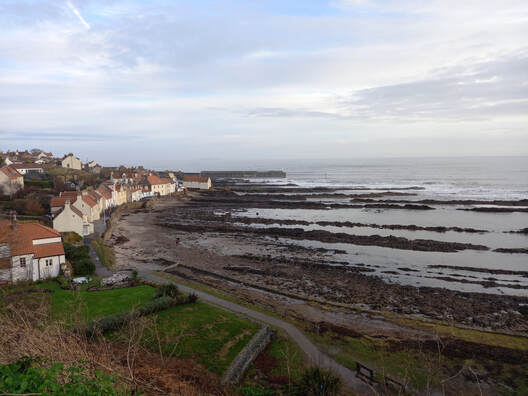
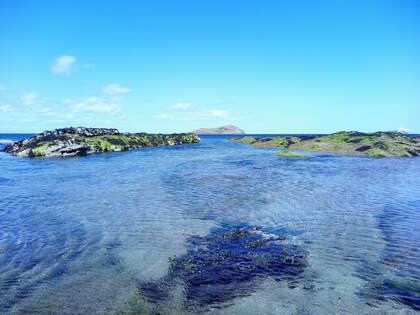
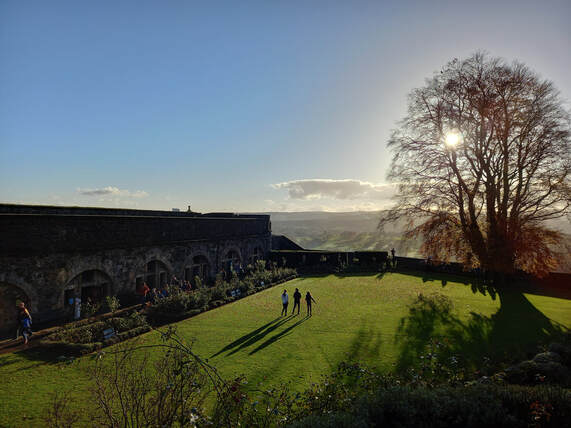
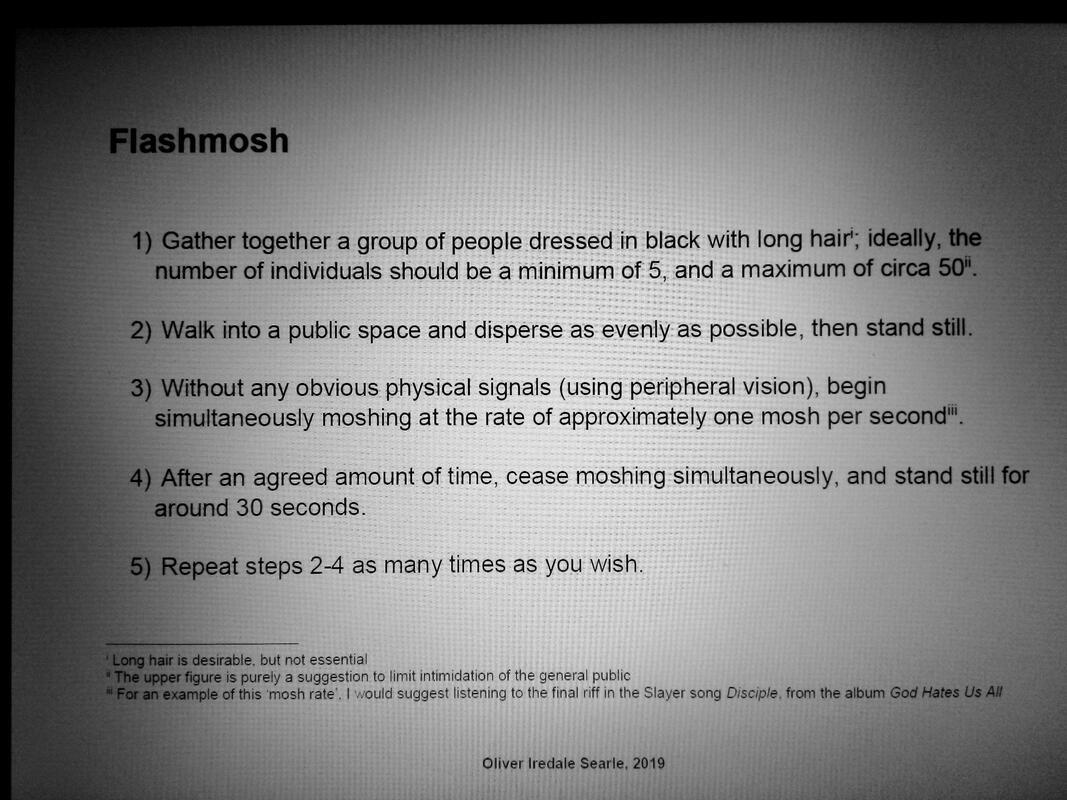
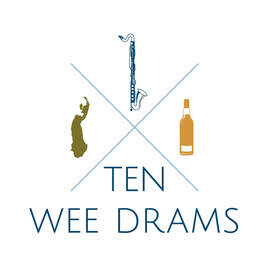
 RSS Feed
RSS Feed
